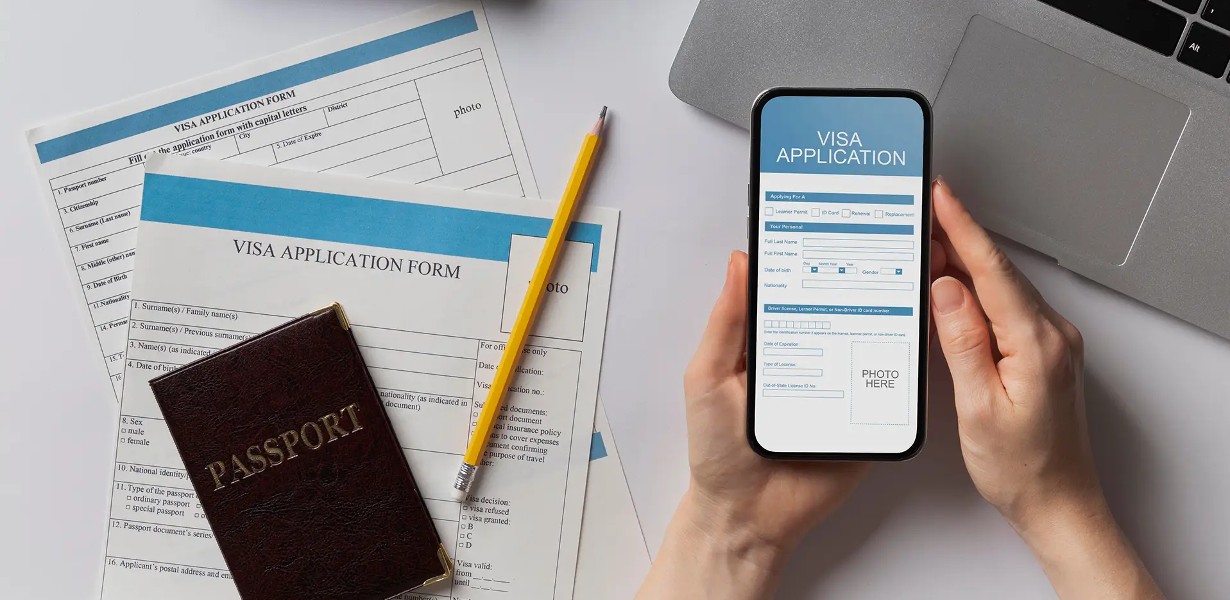
In an era of rapid technological advancement, even the complex world of visa applications has seen remarkable improvements. Gone are the days of endless paperwork and long queues. Technology is transforming the way we apply for visas, making the process more accessible and efficient. In this article, we explore how technology is streamlining visa applications, simplifying what was once a daunting task.
The Digital Visa Application Journey
Applying for Visas Online
Traditionally, visa applications involved visiting embassies or consulates and filling out lengthy forms. Now, with the power of the internet, applying for visas online is the norm. Many countries offer online portals where you can submit your application from the comfort of your home.
Document Upload and Verification
Technology has simplified the submission of required documents. Most online systems allow you to upload scanned copies of necessary paperwork. This not only reduces the risk of documents getting lost but also expedites the verification process.
Biometrics and Enhanced Security
The Role of Biometrics
Biometrics, such as fingerprint scans and facial recognition, have become key elements of visa applications. These technologies enhance security by ensuring that the person applying for the visa is the same person in the documents.
Anti-Fraud Measures
Advanced algorithms and machine learning tools are used to detect fraudulent applications. These technologies can identify irregularities or discrepancies in the provided information, making the process more secure.
Mobile Visa Apps for On-the-Go
Mobile Convenience
The rise of mobile visa applications has brought convenience to a new level. Travelers can now download dedicated visa application apps, making the process more accessible while on the move.
Real-time Updates
Mobile apps provide real-time updates on the status of your application. You can receive notifications, eliminating the need to repeatedly check the application status.
Artificial Intelligence in Visa Processing
AI-Powered Decision Making
Artificial intelligence is being employed to assist in visa processing. It can help analyze the vast amount of data submitted and make recommendations to the reviewing authorities.
Efficiency and Speed
AI-driven processes can significantly speed up visa approvals. It ensures that the processing time is reduced, and travelers get their visas in a more timely manner.
Automated Kiosks and Self-Service
Airport Kiosks
Many countries have introduced automated kiosks at airports, allowing travelers to complete visa-related processes quickly. These kiosks scan your documents, take biometric data, and issue visas on the spot.
Self-Service Portals
Self-service visa portals enable travelers to manage their visa applications and renewals efficiently. You can check the status, update information, and even receive alerts about expiry dates.
The Future of Visa Applications
Blockchain and Immutable Records
The integration of blockchain technology promises even greater security by creating immutable records of visa-related transactions. This not only enhances data protection but also reduces the chances of fraud.
E-Visas and Visa-Free Travel
E-visas and visa-free agreements between countries are becoming more widespread. Travelers can enjoy the ease of obtaining electronic visas, and some destinations allow entry without a visa.
Final Words
As technology continues to advance, visa application processes will only become more streamlined and efficient. Embracing these innovations ensures a hassle-free experience for travelers. The days of sifting through paperwork and waiting in long queues are gradually fading into the past. The future is digital, and it’s making visa applications simpler than ever.
Commonly Asked Questions
1. Can I apply for a visa online for any country?
Many countries offer online visa applications, but the availability varies. Check the official website of the country you plan to visit for specific details on the application process.
2. How secure are biometrics in visa applications?
Biometrics play a vital role in enhancing security. These technologies are highly secure, and data is encrypted to protect your privacy.
3. Are mobile visa apps available for all countries?
Mobile visa apps are available for some countries. Research the specific country’s visa application process to see if they offer a dedicated app.
4. What is the role of AI in visa processing?
AI is used to analyze and process visa applications efficiently. It can help authorities make informed decisions, reducing processing times.
5. Are e-visas accepted as widely as traditional visas?
E-visas are gaining acceptance in many countries, but the availability varies. Check the specific country’s visa requirements for the most up-to-date information.




